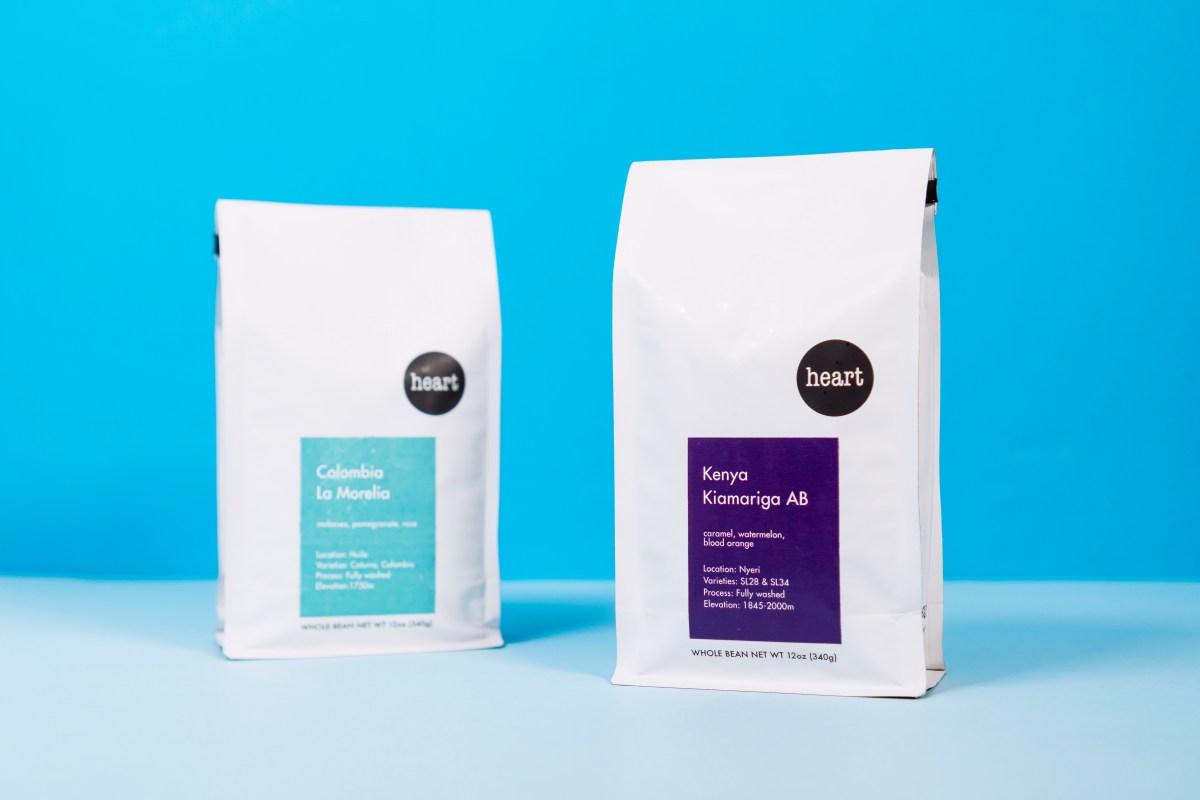
HELLO

Ray: I’m Ray.
Kandace: I’m Kandace.
Ray: Welcome to Unpacking Coffee. This week, Heart Coffee Roasters of Portland, Oregon.
Kandace: Willie and Rebekah sat down with us and talked about what? So many things.
Rebekah: My name is Rebekah Yli-Luoma. I don’t really know what my job title is. I guess CEO maybe? I don’t really know.

Wille: My name is Wille Yli-Luoma. I am the founder. I guess I wear a lot of different hats.
Kandace: It’s so exciting to talk about Heart because they’re here in Portland and we love their coffee.
Ray: I feel like what Wille brings to what he does is a certain rigor and scientific method.
Wille: Seven years ago, we were probably the only ones in Northwest that was even using the refractometers, and just measuring our coffees, and just really putting energy into it.
We cup for quality and just try to find the best coffees. That’s all we’re going to be tasting for several months in a row when releasing a coffee. We’re roasting the coffee, kind of figure out the roast profile, so if it’s something we don’t like, just kind of, it gets old tasting over and over.

We look for sweet and clean coffees. Clean meaning we try to stay away from all the natural processed coffees that people are supposedly really into. Natural processing coffee isn’t really the same as natural processing wine or other areas. It’s just, they let the coffee ferment. The skin and the cherry ferment on the bean, and it doesn’t produce nice flavors 99% of the time.

We just buy washed coffees and we want to be able to roast the coffee so you can taste where the coffee is from without knowing. We have enough data and things we gathered over the years. It’s starting to make more and more sense to me. I think this is the time that’s the most interesting right now.
Also, having a good communication with the farms. We can start with confidence giving them advice on how we want coffees to be processed or dried without being scared that we’re going to mess up their crop.
Snowboarder to Roaster
Kandace: When you think about what it takes to be a professional athlete, which is hours and hours and hours of practice and putting yourself out there and honing your craft. It looks like that he turned all of that into learning to roast, right? Self-teaching.
Wille: I was still snowboarding when I started.
Kandace: Yes, okay.
Wille: Coffee was always like a hobby or a passion. Actually, I went a little bit too far. I would say that it become an obsession. It was hard, though, because most professional athletes are used to a different lifestyle. Then going from that to coffee, just no money in coffee. If you really want to make money, don’t get into coffee.

Then, at one point I was like, “Well, maybe I should open my own café.”
I was really into biking. I was like, “Ah, maybe I’ll open a café where I work on bikes and sell coffee.”
Then the more I started thinking about it, I was like, “Ah, I’m getting like old for snowboarding.” Just my body was starting hurt. I was like, “Ah, I kind of just want to move on from it.”
One day I was like, “No, it’s time. It’s time to do this.”
I ended up buying a roaster because I just didn’t really like the coffees that I was getting here in the Northwest. I thought that there could be something else introduced in the market, a little bit lighter roast than was happening here. The whole bike thing I scrapped, and I just decided to focus on roasting.
Café
Kandace: They have two cafe’s. Presently, they have two cafe’s. They’re opening a third. They’re a company. Wille founded it. He brought Rebekah in about eight months in. They’ve been running the business together ever since. We know a little bit about that.

Read the full interview with Wille and Rebekah.
Rebekah: How did I start? I don’t know. How did I start? He just needed me to help.
Wille: I needed someone else that like-
Rebekah: I was like, “Ah, well, I’ll come in for a couple weeks and clean some stuff up.” Then I came in and I was like, “I guess I’m going to be here for a while.” My God.
I liked coffee a lot and I like business. I like people. It’s constant. As we grow it’s just the jobs change and my need, my attention is shifting over here, and then it’s back over here. Now I’m really committed. In the beginning, what made me decide to stay, probably just the fact that I was needed and it was a challenge for me.
Heart in Seattle
Kandace: You know what’s happening today?
Ray: What?
Kandace: They’re having their first day at the La Marzocco café in Seattle.
Ray: Oh, nice.
Kandace: Tomorrow is the opening party.
Wille: We pretty much take the same model from our cafe’s to there and-
Rebekah: Hopefully, people like it.

Wille: Yeah. We’re going to do a couple of classes up there too of brewing and cupping on our home express machine.
Rebekah: Yeah, home espresso classes.
Wille: Yeah.
Ray: Simplicity. This is the essence of the Heart brand. Just pure white bag. Five bottom stands op. Color representing the coffee and just that little black logo.
They’re basically their brand typography is all Futura, almost black and white.
Really, and every time they use the photography or anything, the colors just pop.
Heart Coffee Roasters of Portland, Oregon.